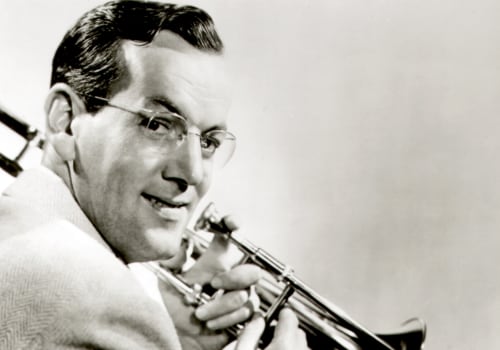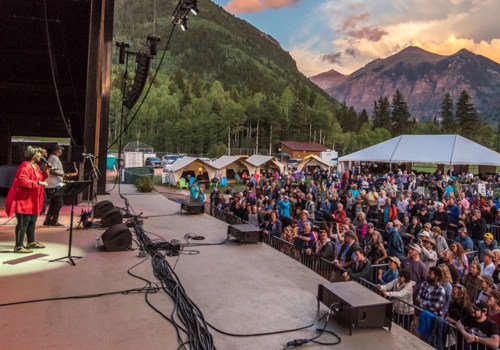Jazz is a genre of music that has been around for centuries, and it has evolved and changed over time. It is a genre that has been embraced by many cultures, and it has been used to express emotions, create art, and even to make a statement. It contains a strong harmony, which makes it very pleasant to the ear. There's a rhythm in the song, and that's the heartbeat.
Jazz's unique selling point is largely due to improvisation, another great aspect of jazz. As the brain receives messages from the environment, it releases chemicals to react accordingly. Following the influence of jazz, the brain tends to imitate rhythmically improvisational patterns, which can burst and shake sometimes in sharp measures. Therefore, activity in music influences greater hyperactive neural stimulation.
Jazz has always sought a popular audience with varying success, but since its inception, it has been music that is often performed by musicians for musicians. This has made many listeners impatient with it, feeling that if one practically needs a degree in music theory to appreciate it, its practitioners should not expect the untrained or casual audience to be bothered by it. But on the other hand, its technical pretensions have made jazz a kind of status music with some audiences. Jazz, of course, has to do with race in the United States, not only because African-American musicians were so central to its creation and the African-American public was so important in their creative responses, but because whites played such a dominant role in its dissemination through records and performance venues and their ownership as intellectual and artistic property. Whites also played jazz from their earliest days and always constituted an important part of their audience.
Whites, both in the United States and in Europe, were the main critical performers and writers on jazz as well. Jazz has generated an international and influential lifestyle, an attitude towards life — the hot, the modern and the cool — that is secular, obsessed with youth, obsessed with the marginalized and detached but passionately egocentric. This attitude of cool and modern has influenced literature, including the production of the so-called jazz-novel and jazz-poetry, as well as art, speech, dress and anti-bourgeois habits of indulgence such as the use of illegal drugs like marijuana and heroin. Even interracial sex, considered rebellious by some and deviant by others was associated with the demi-monde of jazz. Each dimension of jazz described above is the subject of academic and critical study in a variety of fields including English, history, American studies, musicology, African American studies, Americas studies and cultural studies. In fact, jazz studies as an interdisciplinary field of research and pedagogy formally exist and have their own magazine Jazz Perspectives. What's all this about anyway? And why should those who have no interest in jazz worry about all this? Regardless of how much jazz has lost today in terms of its audience size compared to popular music forms with higher market shares it has gained in terms of high esteem in which it is held in business and art as a sophisticated artistic expression (it is often used as background music in business luxury establishments museums and galleries and in commercials that promote exclusive products) as well as institutionalization that it has experienced as a formal course of study in many colleges and universities. In fact if it weren't for colleges universities high school jazz bands and institutions like Jazz at Lincoln Center and SF Jazz it's quite possible that few young people in the United States would play or listen to jazz today. As we move towards answering these questions authors of this issue weave a narrative about jazz then and now to address an understanding of why in its many forms and forms jazz remains important. In jazz Geoffrey says: “It's easy to express your emotions.
You get the score and read it from top to bottom. You're more focused on making it technically perfect. In jazz your main focus is be creative and use your imagination”.Jazz rhythms and harmonies have been presented in styles of music that produce a rocking rhythm such as R&B or Latin-style melodies. William Klemm from Psychology Today says you should listen to jazz music as it comes with a multitude of different cognitive benefits that enrich your mind. Through him and others like him jazz learning is now formalized on a global scale every year hundreds of highly qualified jazz musicians graduate. The Black Lives Matter movement has inspired a flourishing of socially engaged artistic expressions in jazz (Breathless by Terence Blanchard) popular music (Beyoncé's Lemonade) hip hop (To Pimp A Butterfly by Kendrick Lamar) that models itself on artistic vision of jazz. Nowadays jazz is an art that can satisfy compulsions of liberationists conservatives those who seek change those who prefer stasis. It wasn't called jazz back then but way slaves played sang music was different special every time they take stage jazz musicians can perform songs no one has heard before no one will ever hear again. The taste of jazz also known as samba big band bossa nova avante garde acid jazz fusion jazz orchestral jazz smooth jazz afro beat swing - Jazz music styles slowly evolved spread other parts country so time Civil War jazz existed some form both North South. Jazz has been transformed into many different styles subgenres thus inspiring artists infuse jazz into their work variety ways. Jazz is complicated because can be traditional or conversational tool used approach improvisation composition structure forms harmonic vocabulary. Jazz is old enough genre at this point you can more easily understand where why went different places. And so all this leads us consider perhaps sales figures music albums are so low because popular “crossover” albums generally not classified as... You get the score and read it from top to bottom. You're more focused on making it technically perfect. In jazz your main focus is be creative and use your imagination”.Jazz rhythms and harmonies have been presented in styles of music that produce a rocking rhythm such as R&B or Latin-style melodies. William Klemm from Psychology Today says you should listen to jazz music as it comes with a multitude of different cognitive benefits that enrich your mind. Through him and others like him jazz learning is now formalized on a global scale every year hundreds of highly qualified jazz musicians graduate. The Black Lives Matter movement has inspired a flourishing of socially engaged artistic expressions in jazz (Breathless by Terence Blanchard) popular music (Beyoncé's Lemonade) hip hop (To Pimp A Butterfly by Kendrick Lamar) that models itself on artistic vision of jazz. Nowadays jazz is an art that can satisfy compulsions of liberationists conservatives those who seek change those who prefer stasis. It wasn't called jazz back then but way slaves played sang music was different special every time they take stage jazz musicians can perform songs no one has heard before no one will ever hear again. The taste of jazz also known as samba big band bossa nova avante garde acid jazz fusion jazz orchestral jazz smooth jazz afro beat swing - Jazz music styles slowly evolved spread other parts country so time Civil War jazz existed some form both North South. Jazz has been transformed into many different styles subgenres thus inspiring artists infuse jazz into their work variety ways. Jazz is complicated because can be traditional or conversational tool used approach improvisation composition structure forms harmonic vocabulary. Jazz is old enough genre at this point you can more easily understand where why went different places. And so all this leads us consider perhaps sales figures music albums are so low because popular “crossover” albums generally not classified as...







